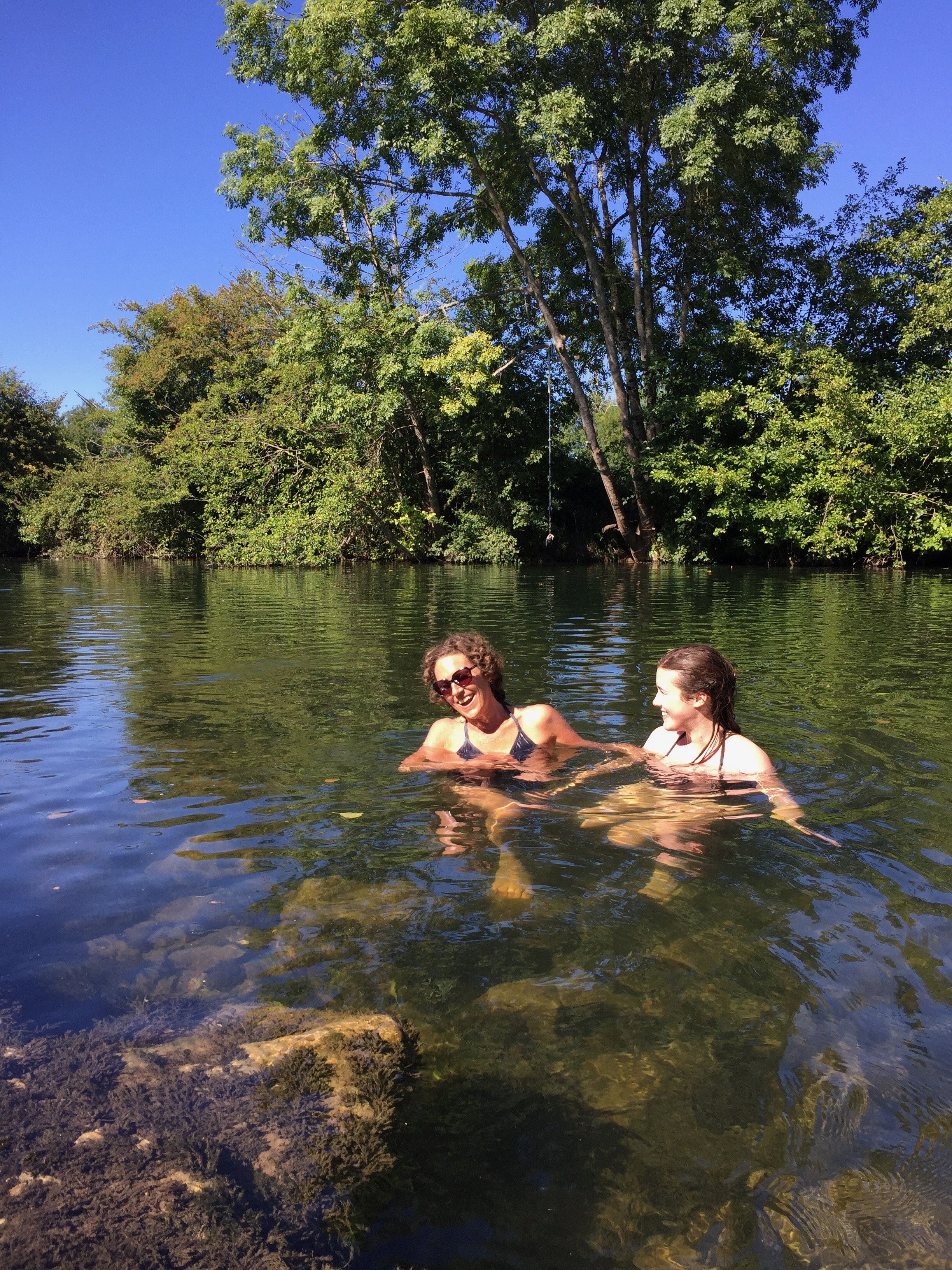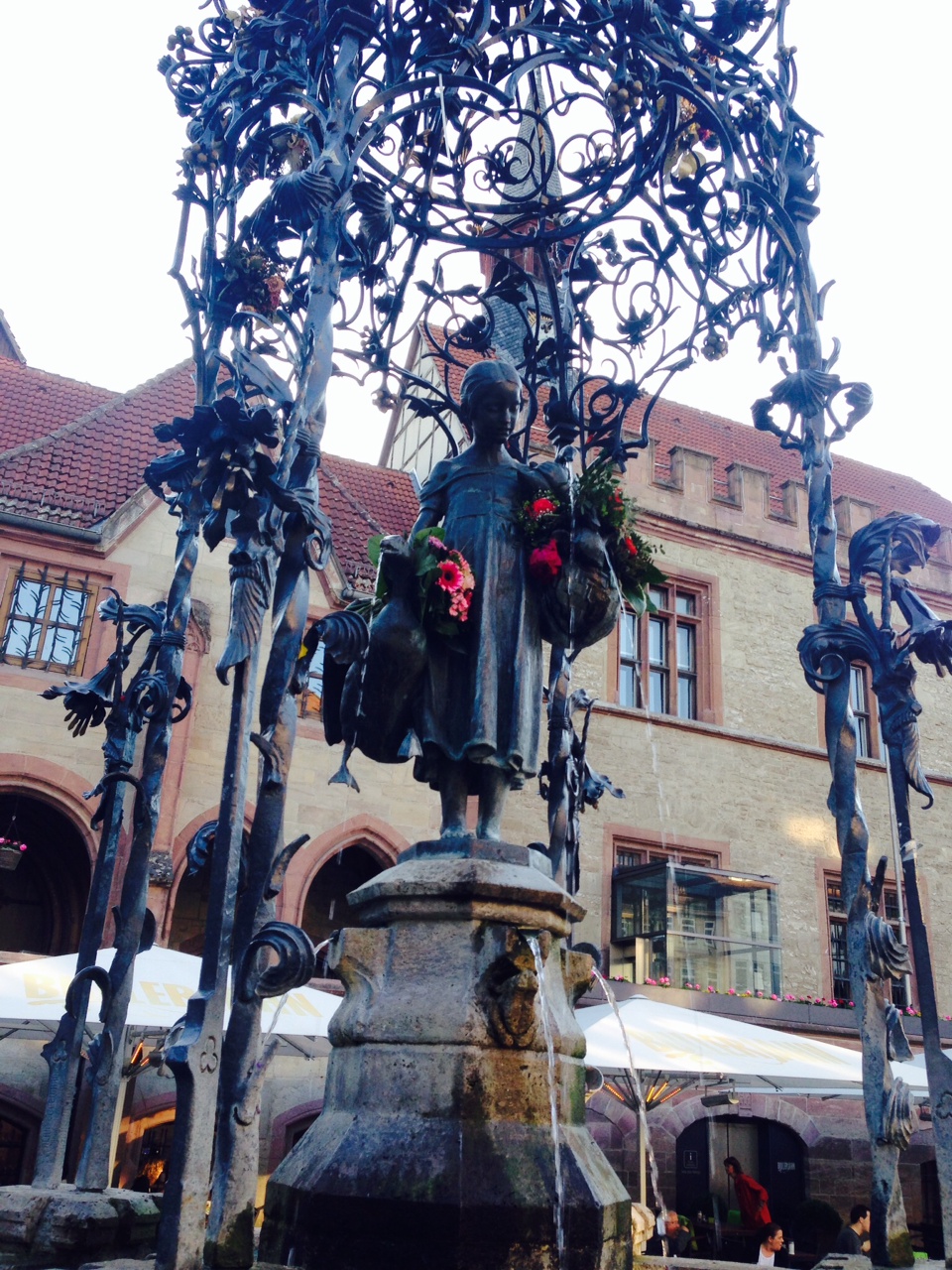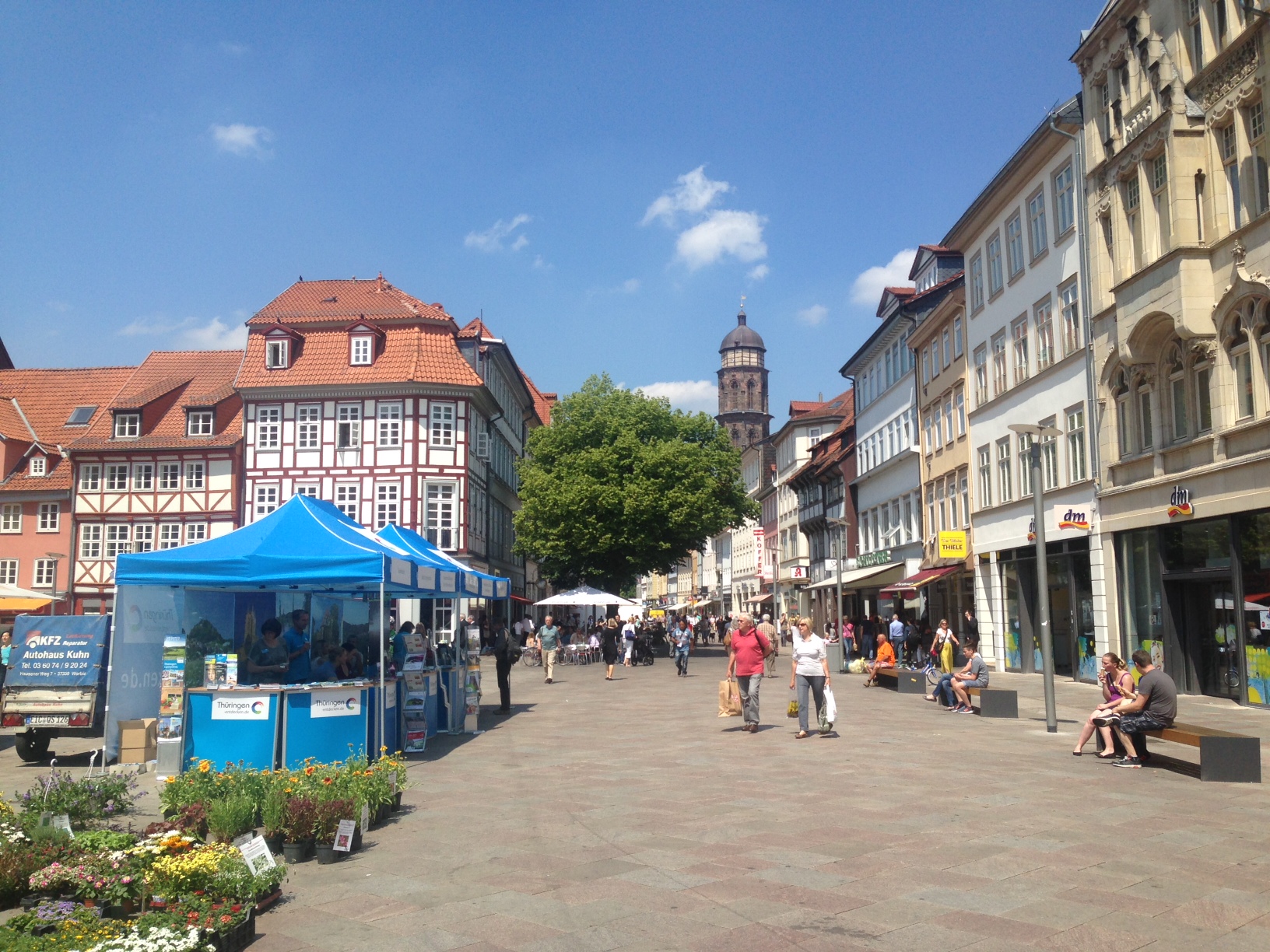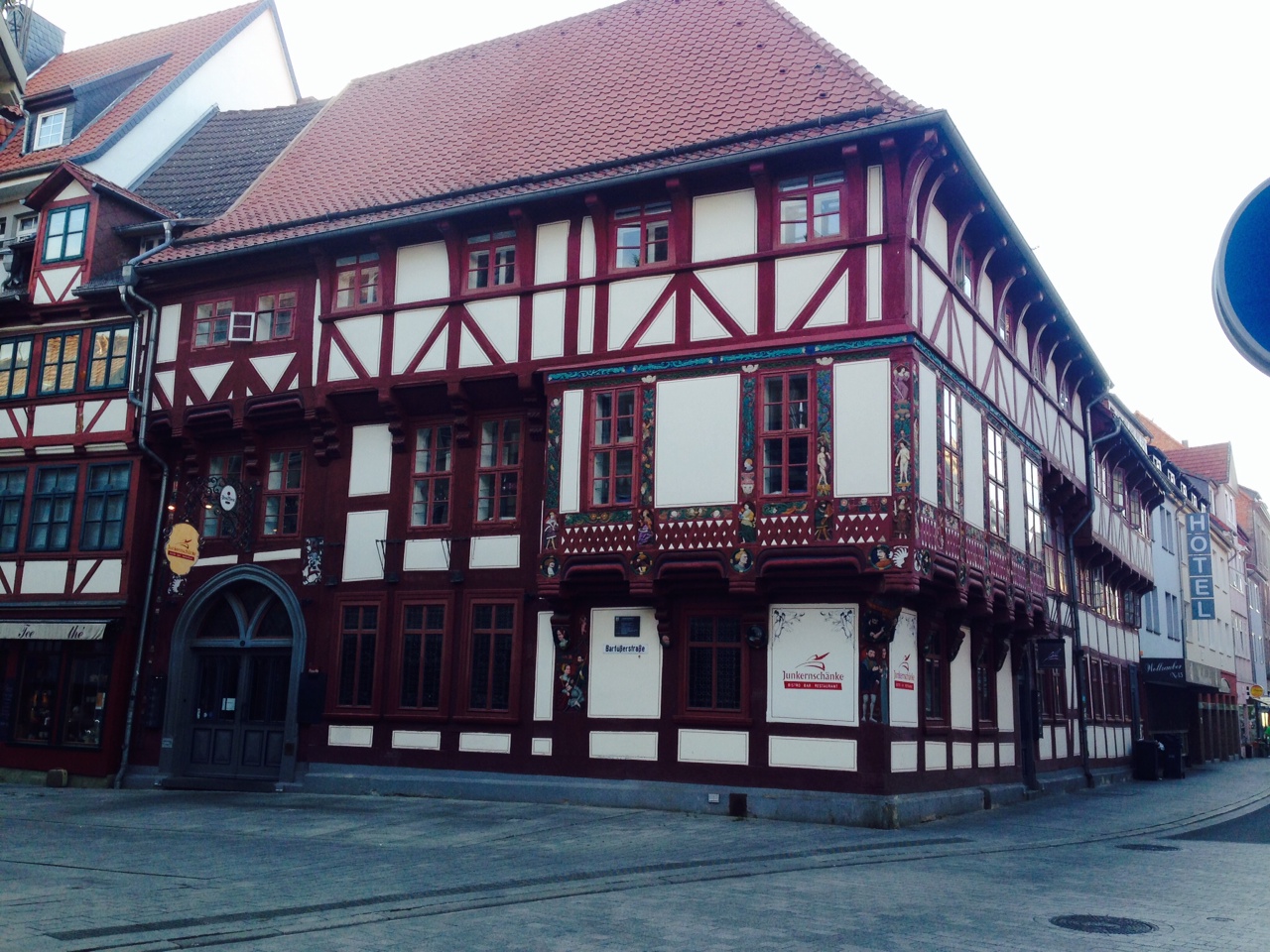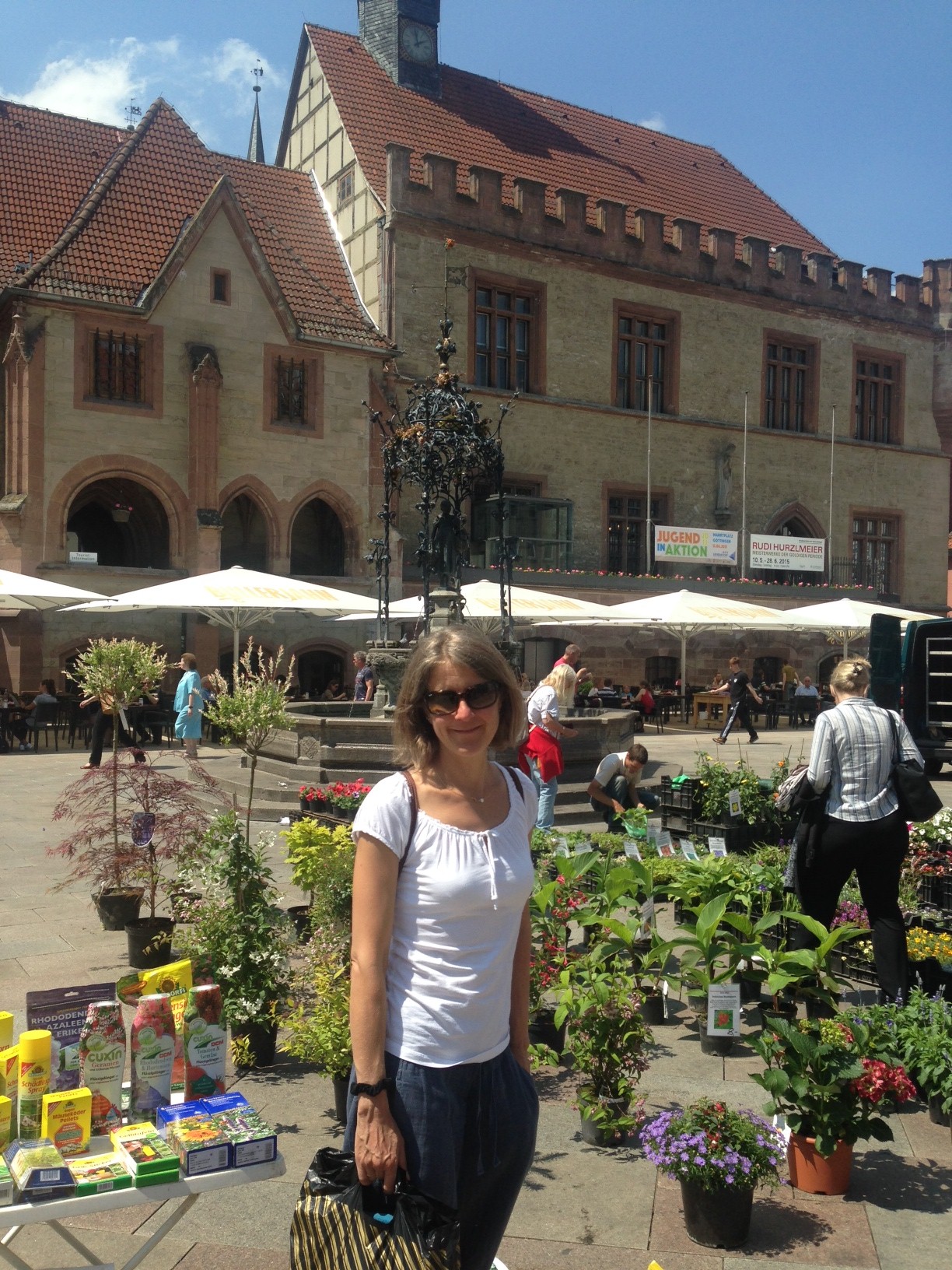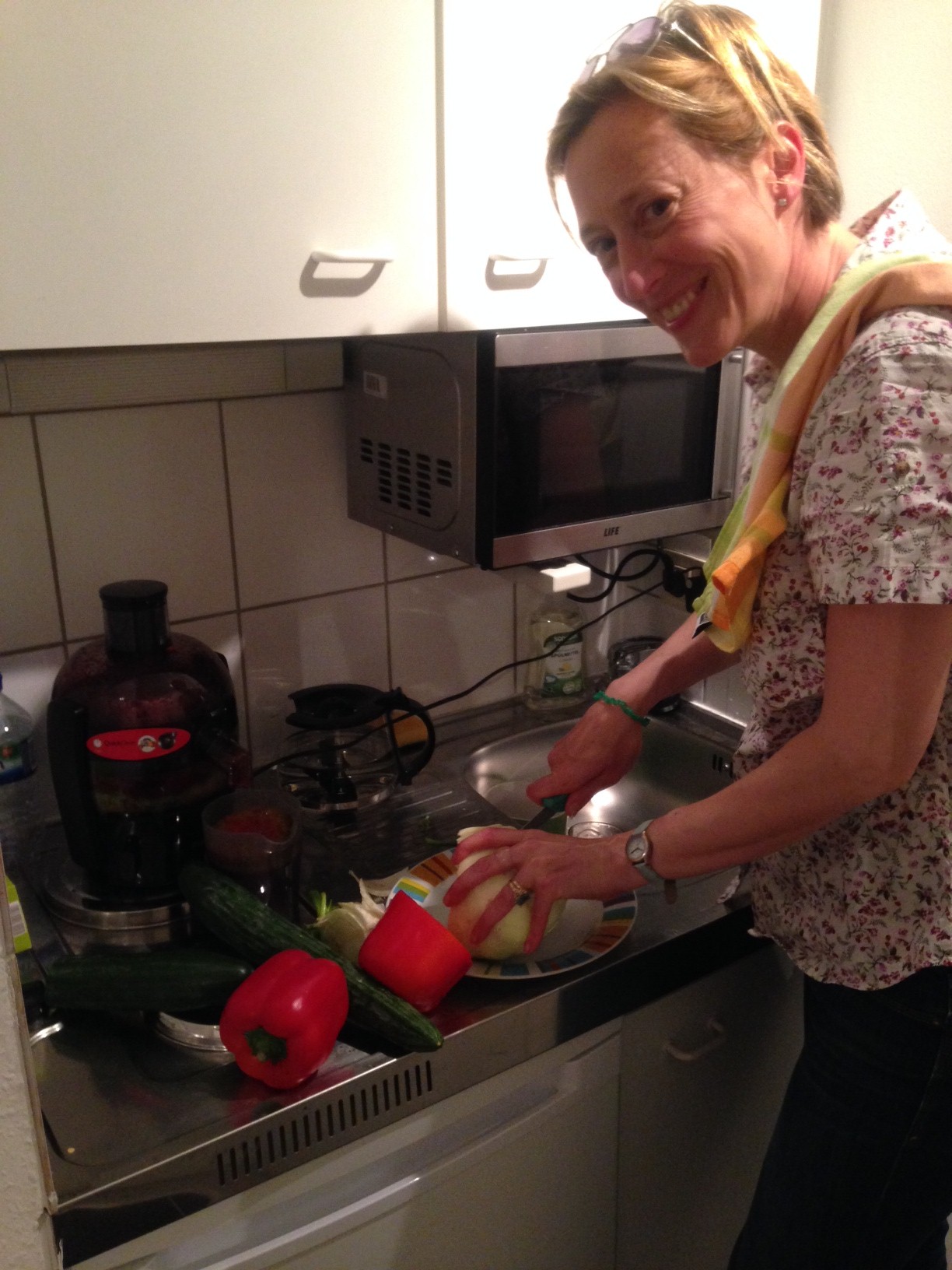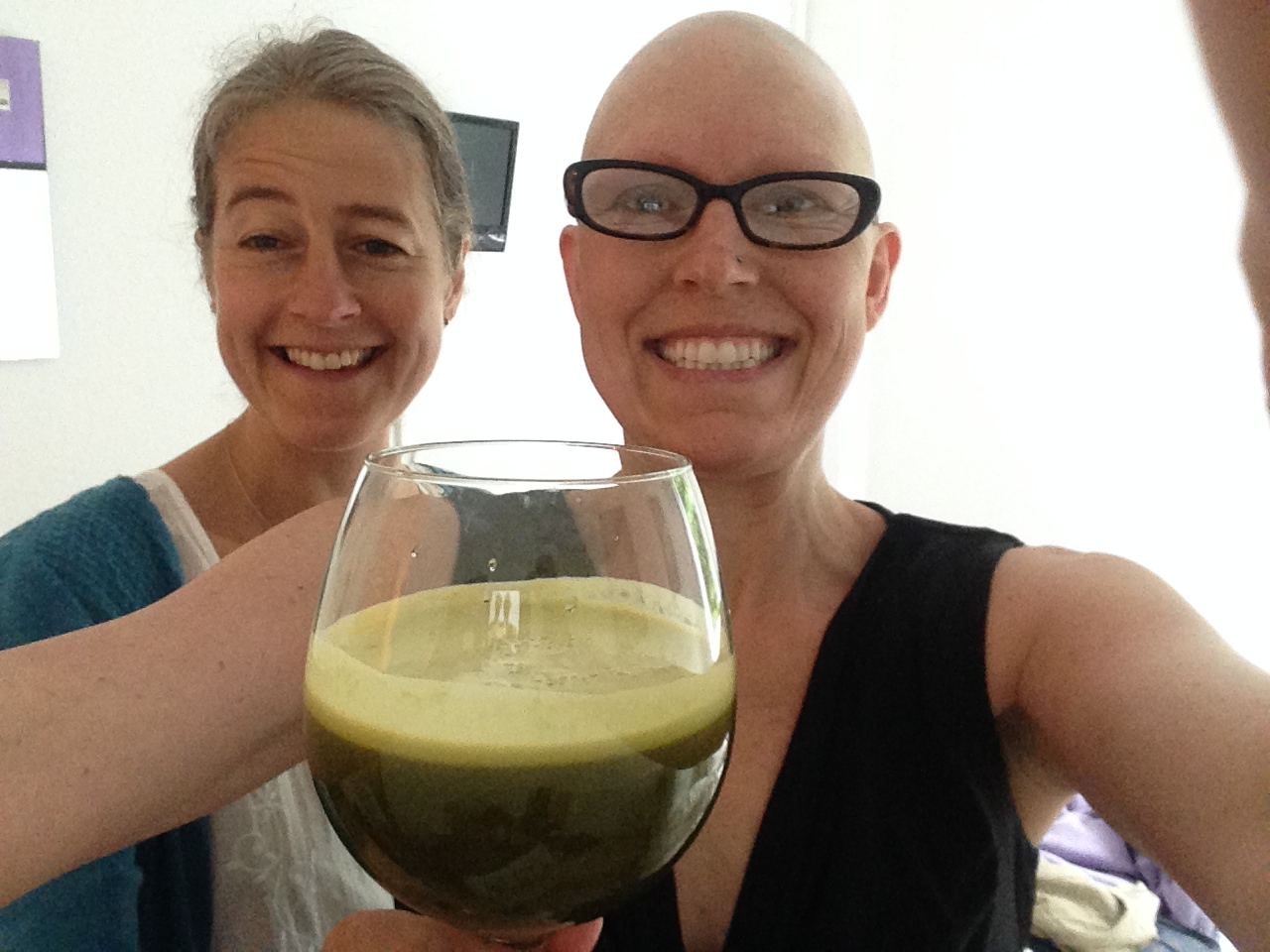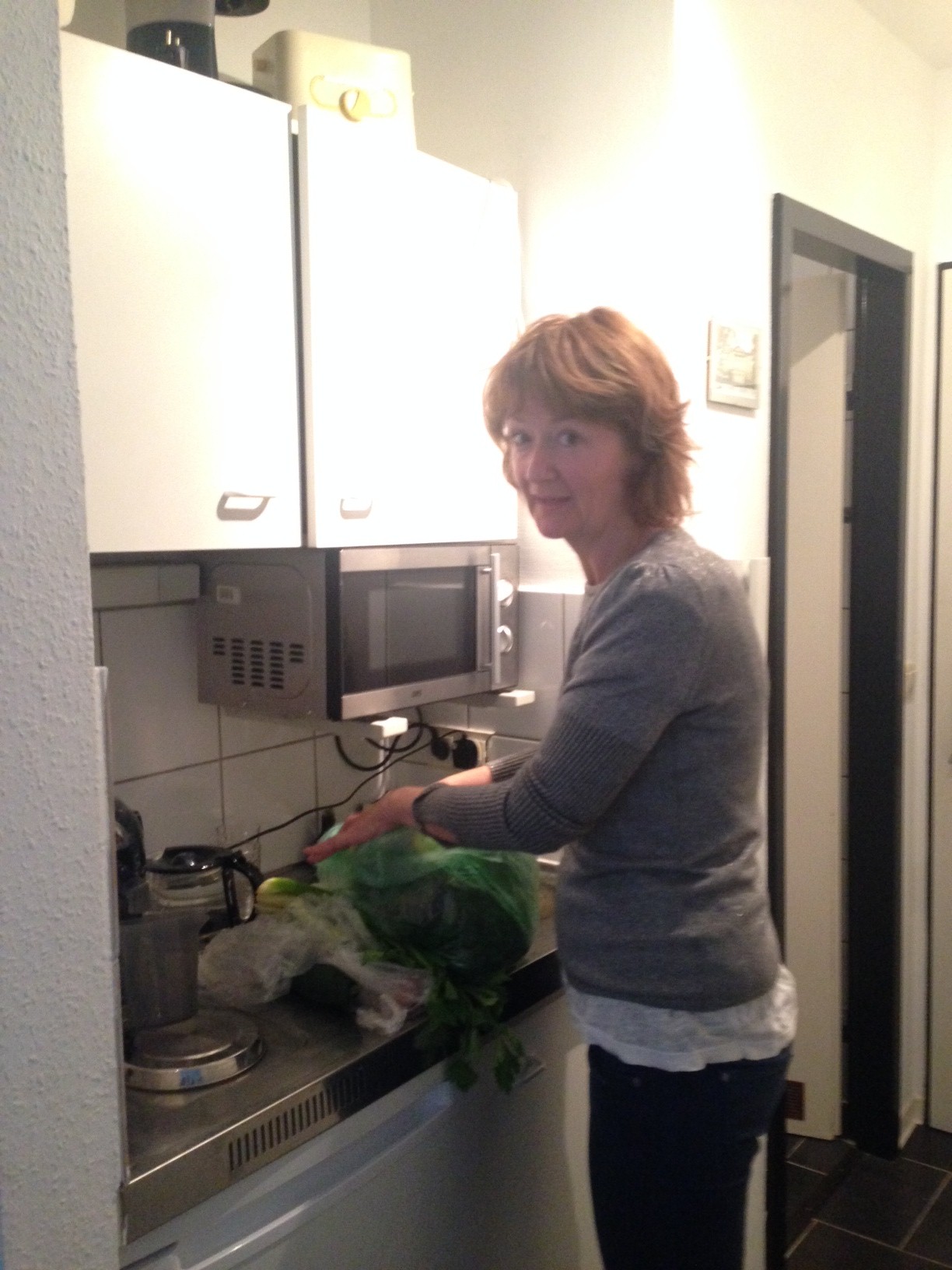Science not magic…Dendritic Cell Therapy
/June 18th 2015
I am now home! I had the vaccine on 16th June. As Dr Martin gave it to me I said ‘Please let it work it’s magic’. ‘It is not magic’ replied Dr Martin, ‘it is science!’. They injected 6.3 million dendritic cells into me. Apparently anything above 1 million is OK, but Dr Martin is quite understated so I cannot work out if 6.3 million is good or just OK.
He gave me a dose of interferon with the injection; I think to stimulate my immune system. I was warned I should like to get flu like symptoms a few hours after the vaccine which would last for a few hours. And sure enough about 3 hours afterwards I lay in bed shivering and aching and with a good high temperature. It lasted almost 8 hours – but I was happy as this is what they want to happen. I felt rather black and blue the following day, on which we caught the flight home after my last session of hyperthermia. I will return in July, early September, October and November. Meanwhile I wait and hope they are doing their job.
June 14th 2015
It is Sunday today. I have a day off, that means no treatment. It is a beautiful day so I have spent this morning in the Botanical Garden and at a near by café (drinking green tea of course). Gottingen is a really lovely town. The people are polite and kind and there is so much life. It has a population of about 125,000, a quarter of which are students.
Kate left on Thursday morning and Teresa arrived that night, she then left this morning and I will soon be joined by Sophie. Spending time with these amazing friends has been a treat. There is definitely general juicing rivalry going on. Ella was the one to beat, not only for size of the juice but for how unpalatable it was. She has had more practice granted, so the playing field has not been even. Kate made a valiant effort, and was particularly harsh over the last dregs which she made me finish almost to the last squelchy, foamy, yucky deposit that collects at the bottom. But I think Teresa wins. I actually threw up a few minutes after her first attempt. It was possibly a case of too much beetroot, but the effect was spectacular. Her confidence was shaken but she persevered.
Since I last wrote I have continued with daily hyperthermia. Then on Friday I had the first dose of the Newcastle Disease Virus. This is given as an infusion (ie mixed with saline and fed through a line in my arm). It is used to help support the dendritic cell therapy. The history of it is fascinating. I am going to copy some of the clinic’s summary about this this virus that was included in the consent form I signed before they administered it. There is some clunky English by whoever translated it from German. Here is a photo of the vial the virus that went into me came in.
Tumor Therapy with oncolytic virus Newcastle Disease Virus (NDV)
With regard to the up to know unfavourable results of conventional therapy in the treatment of especially advanced tumours novel therapeutic methods have to be developed. …a promising approach is the treatment with replication selective viruses, also called oncolytic viruses. This approach is also known as virotherapy. The approach to virotherapy in our group is based on the Newcastle Disease Virus (NDV), one of the most promising candidates among the group of oncolytic viruses….NDV is not a pathogen for humans and is harmless causing only mild flu like symptoms or conjunctivitis in the worst cases. NDV replicates efficiently in humans in tumour cells, only leading to the complete destruction of the infected tumor cells within a short time. In clinical studies with NDV carried out so far, significant tumor remissions as well as prolonged survival periods have been observed with a very low rate of observed side effects. …The oncolytic potential of NDV is highly increased by the additional application of local hyperthermia before the administration of NDV, and by vaccination with Dendritic cells afterwards.
I will be given this again on Monday, with more hyperthermia and a drug called Zometa which is used for osteoporosis and for people with breast cancer in their bones (maybe for all cancers) – but I think it works to harden the bones but has an effect on white cell production and is used to prime the immune system.
I feel very safe here and confident that this therapy is based on good science. Indeed I have been talking with Dr Martin to understand more about the history of the therapies and why they are not more widely recognised given that results are at least as good as conventional therapies and do not destroy the immune system like chemotherapy does. I will continue to investigate this, as from what I have learned this is a story that needs to be told.
The Scientist Ralph Steinman, received a Noble Prize in 2011 for the Physiology of Medicine for the ‘discovery of the dendritic cell and its role in adaptive immunity’. Not one scientist has received the Nobel prize for chemotherapy. ‘In 1973, Steinman and Cohn discovered dendritic cells, a previously unknown class of immune cells that constantly formed and retracted their processes. This discovery changed the field of immunology.’ www.nobelprize.org
This is what I have so far pieced together, but do not fear I will find out more. For the first two decades of his research the potential of dendritic cells was not appreciated but by the mid 1990s they attracted growing attention from the scientific community. Ralph Steinman, was himself diagnosed with Pancreatic Cancer in 2007 and more or less told to go home and that he had probably only a couple of months. He believed that dendritic cells had the potential to fight his tumour so he administered dendritic cell therapy to himself. He survived almost 5 years, which was unheard of for pancreatic cancer (and is pretty rare today). He died 3 days before the prize was announced and I think is the only person ever to have been awarded a noble prize posthumously. You can read the Nobel Prize Lecture given on behalf of Steinman here: http://www.nobelprize.org/nobel_prizes/medicine/laureates/2011/steinman-lecture.html
The University of Gottingen is one of the best know Universities in the world for science. A team here undertook a study in the 1990s, comparing outcomes from the treatment of renal cancer (which like pancreatic cancer has limited treatment options) between dendritic cell therapy and the chemotherapy gemcitabine. The results were impressive with survivorship among those receiving dendritic cell therapy being significantly longer than the other group. The University were naturally very excited about this ground breaking research and published (among other publications) a one off glossy report celebrating and sharing these results.
From here I am still piecing things together but I understand that these findings attracted research funding from Denmark to the tune of 5 million Deutchmarks but things went wrong when a researcher doing his post doctoral thesis was found to have faked some data in this subsequent study. The reputational impact of this on the University was severe and they were quick to respond, closing down the research which effectively bought the investment in the study of dendritic cell to a close.
Over this period Dr Nesselhaut and Dr Martin took their work to their own private practices in and near Gottingen (Duderstadt) where they set up their own laboratory and continued to focus on this therapy, and after much scrutiny from the relevant health authorities are able to offer this. Mainly it is available only to patients able to pay for it, but there is at least one insurance company (Max Plank) for patients in Germany which will pay for it (presumably because they have looked into the results and are actually interested in outcomes).
Not long ago the University showed renewed interest in partnering with Dr Nesselhaut and Dr Martin to continue research in this field but they could not reach an agreement and the University is no longer pursuing this.
So this helps explains why these two clinics are located where they are offering this therapy. Why there has been no further major interest in this line of treatment I simply cannot understand. It can only be a commercial decision. The original findings from the study on renal cancer hold. The Nobel Prize winner was certainly not a charlatan. Is this really a case, as many I am coming across, of certain therapies simply not offering sufficiently high financial rewards to be worth the investment in further research necessary for them to become accepted or offered as part of normal practice. Certainly, as I mentioned in the earlier blog, the approach is highly personalised, time consuming and does not produce a vaccine which can be mass produced.
In the meantime there are some uncomfortable truths about existing treatments. I am collecting papers, unfortunately in German and so I will need some help with translation, but one of them is written specifically for German Health Professionals, and is traditionally a very conservative publication. Published in 2005 authors undertook a retrospective analysis of studies which examined outcomes for patients with mestatic breast cancer (aerzteblatt.de) and they concluded that length of survival had not changed in 20 years (Metastasiertes Mammakarzinom: Keine Lebesverlangerung siet 20 Jars). With the introduction of a growing number of more targeted therapies (eg hormonal) since this paper was written this is likely to changed and I will investigate and update. (source www.aerzteblatt.de/archiv/48590). The main treatments offered over the period of this review were surgery, chemotherapy and radiotherapy.
Another often quoted paper (The Contribution of Cytotoxic Chemotherapy to 5-year Survival in Adult Malignancies – Clinical Oncology (2004) 16: 549-560) reports findings from a study which examined more than 300,000 patients with different cancers across USA and Australia who all received chemotherapy. The authors wanted to determine what the 5-year survival benefit that could be attributed soley to cytotoxic chemotherapy in adult malignancies. They estimated that the overall contribution of curative and adjuvant cytotoxic chemotherapy (chemotherapy alongside another treatment) to 5-year survival in adults was 2.3% in Australia and 2.1% in USA.
For mestastatic breast cancer specifically they write the following:
In breast cancer, the optimal regimen(s) for cytotoxic chemotherapy in recurrent/mestatic disease are still not define, despite over 30 years of ‘research’ and a plethora of randomised controlled trials (RCTs) since the original Cooper regimen was published in 1969. There is also no convincing evidence that using regimens with newer and more expensive drugs are any more beneficial than the regimens used in the 1070s.
In addition two systematic reviews of chemotherapy in recurrent or metastatic breast cancer have not been able to show any survival benefit. The absence of quality of life data in many RCTs of cytotoxic chemotherpay has also been noted.
Although guidelines may exist for some uses of palliative cytotoxic chemotherapy, clinicians are not restricted from giving second, third or fourth line palliative chemotherapy in the face of progressive disease and minimal response rates.
As I read this oncologists can basically prescribe chemotherapies as a second and third plus, lines of treatment, even though there is no evidence of response rates worth writing home about. Despite this, therapies like dendritic cell, which have a stronger evidence base than the use of these chemotherapies as second plus line therapies, are not being seriously considered, dare I say it ignored. The science behind DC therapy is good. Their results are impressive compared with many existing treatments. I am still at a loss to understand why there has not been more interest in this.
Over the last 10 years the science of cancer really has broken open and there is exciting research on a number of fronts, including immunotherapy eg. gene therapy, stem cells. But there is a bottle neck between this research and what is getting through to patients in the form of new treatments. As we understand more about cancer the more complicated the research on treatments becomes. Clearly every person’s cancer is unique. Personalised treatments would therefore appear a sensible way forward. The treatment I am having is the ultimate personal treatment in that it uses my own immune system. There are no mass market products to be made out of this therapy. Hence no interest from the pharmaceutical industry?
I do understand that pharmaceuticals need to make commercial decisions and that a vaccine that works for a large number of people may be a better longer term solution but what happens to those treatments which do not cut the commercial mustard? They may work, but what returns would any investment make? Would not Cancer Research and the like not be the groups, with theoretically no commercial interest and patient outcomes their priority, be the type of group to take up the mantle for these types of therapies? From what I have seen on their website they are very conservative with a small ‘c’ and cautious. For those of us with advanced cancer, hell, we are prepared to take a few risks and we need a system that will enable those opportunities. We need to be treated like adults, able to make decisions about risks of the unknown vs taking no risks at all and dying anyway or having chemotherapy again and again and, oh!, also dying anyway.
I have often seen statements such as ‘there is not enough evidence to support the use of x y or z’. This does not mean x y or z are not of potential benefit and should therefore be ignored, but that the evidence, to the standard currently required, necessary to make this decision does not exist.
When the cat’s away….
There has been a delicate balancing act while I have been away and with Ella now in Thailand. Rupert was in full control last week but this coming week he is away for work so we have a patchwork of help until I get home. I have enjoyed the space away from home to absorb some of the very big thoughts that whir around my head, or that I have pushed to one side until I have had the space to give them the time they need. Having my greatest friends, who have known me almost all my life, has helped. I am still getting to grips with the uncertainty of the future, and working around treatments, scans, injections and not knowing quite how far I can plan ahead.
In terms of treatment options, now that I am in Germany I am planning my next move. I will be returning here at least 4 times but I have to consider what I would do in the event of a relapse. This means being very clear about what my options are so that I can move quickly in the event this happens.
I have a PET scan on 23rd June, as my oncologist needed this to complement the CT scan as a baseline for me. I will see him every 6 weeks I think. I continue to take the hormone pills, and, touch wood, feel generally not too bad on them. I cannot quite distinguish between what is tiredness from the chemo, the current treatment or the hormones – but with no home responsibilities I am able to take it easy between treatments. I continue to meditate daily and take my many supplements and other pills/medicines. Eating vegan has been easy here, although there seems to be a habit of adding sugar to dishes. I have had lunch at the same vegan café everyday as the food is delicious and organic. For the evenings we either make something simple at the studio apartment (but the kitchen is so tiny this does not involve cooking), or we try and find a local restaurant with vegetarian dishes. Our lack of German is a problem. I am fascinated by the language and am learning bits and pieces from the menus mainly. Spargle – I think is asparagus. Kartoffen – potato. I have also worked out (rather William, my third, who learns German, had told me before I left) that nouns in written German start with capital letters. I realise this is why, when you read German, it always looks as if you are being shouted at.
